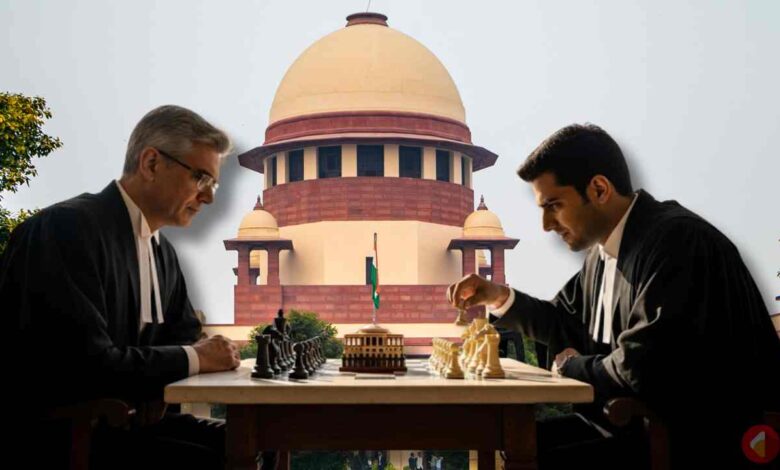DA Case Strategy: ‘DA is Legal Right, Not Fundamental!’ – Lawyers Forge a New Path Today to Avoid the State’s ‘Trap’

DA Case Strategy: Finally, after a long wait, the hearing on the Dearness Allowance (DA) case of West Bengal government employees has begun in the Supreme Court. While this hearing has sparked hope among the employees, a detailed analysis of the state government’s tactics and the counter-strategy of the Sangrami Joutho Mancha is underway. The statement from Advocate Mr. Vikram Banerjee, a panel lawyer for the Sangrami Joutho Mancha, provides a clear understanding of the current situation and the potential future course of this case.
Positive Aspects of the Hearing
First and foremost, the commencement of the hearing after a long period is a significant positive step for the employee organizations. According to Advocate Vikram Banerjee, the start of the hearing means the doors of the judicial process have opened. Now, the arguments of all parties will be heard, and the court will reach a decision based on them.
State Government’s Tactics vs. Joutho Mancha’s Strategy
During the hearing, it is alleged that the state government is attempting to divert the case in a different direction. The state’s lawyers are putting more emphasis on the debate over whether Dearness Allowance is a ‘Fundamental Right’.
In response to this tactic, the Sangrami Joutho Mancha has adopted a crucial strategy. Mr. Vikram Banerjee stated that after discussions with top lawyers like Senior Advocate Mr. Gopal Subramanium, Mr. Bikas Ranjan Bhattacharya, and Mr. P.S. Patwalia, the focus is currently on establishing Dearness Allowance as a ‘Legally Enforceable Right’ instead of a ‘Fundamental Right’.
The reasons for this strategy are:
- Risk Aversion: If the Supreme Court observes in any way that DA is not a fundamental right, it could have a negative impact on all future cases, especially those concerning the 2019 ROPA.
- Focused Fight: The current case is based on the 2009 ROPA (Revision of Pay and Allowances) rules. Therefore, the main objective is to establish that DA is a legal entitlement for the employees under these rules.
- Historical Context: In India, there has been no clear Supreme Court judgment in the last 75 years on whether Dearness Allowance is a fundamental right. Hence, instead of taking this uncertain path, they are proceeding on the path of establishing it as a legal right.
The Core Legal Argument: ROPA and AICPI
The state government is referring to a clause in the 2009 ROPA rules, claiming that the DA rate is fixed at a specific figure (at 536 points).
In response, the employees’ lawyers argue that the term ‘Index Average’ is mentioned in the ROPA rules, which is variable with inflation. It cannot be static. DA is given to combat inflation, so it is natural that it will be consistent with market conditions. This is also clarified in the Pay Commission’s report.
Future Hope and Preparation
Advocate Vikram Banerjee has confidently stated that their legal team is fully prepared. They will be able to refute all of the state government’s arguments and present the true facts before the Supreme Court. In his opinion, there is a significant possibility of winning this legal battle. He has appealed to all employees to remain united and support this fight. The hearing will continue in the coming days, and the employee organizations are optimistic about victory.
